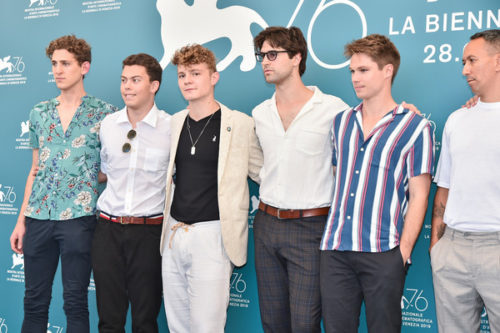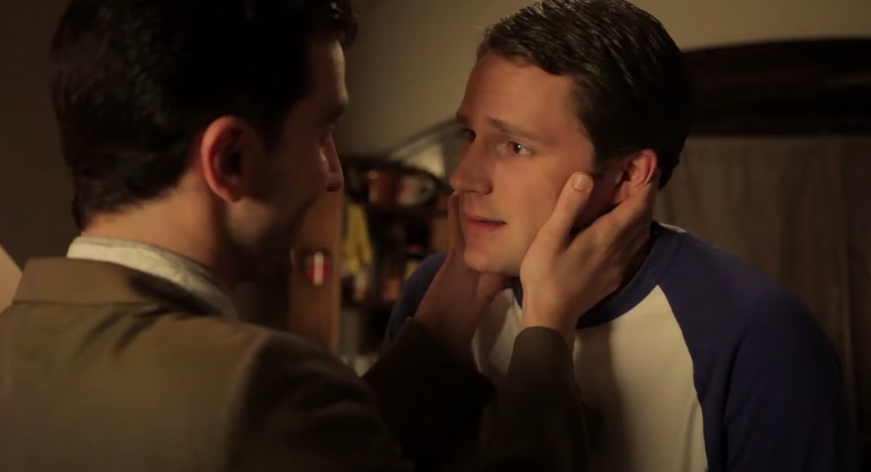The Afrikaans word “Moffie” is South Africa’s answer to “faggot”: an anti-gay slur used liberally and illiberally across the country’s tangle of languages, in casual playground teasing or brutal bigoted assault alike. If it sounds ineffectively soft and silly on the tongue, trust that it can land with the targeted force of a bullet. We inevitably hear it a lot, hurled with equal viciousness and exuberance, in “Moffie,” the piercing, perfectly formed new film from Oliver Hermanus — in which a closeted, terrified teenager is conscripted and sent to war on the Angolan border in 1981.
Each time the word is spoken, it burrows a little deeper under the skin: Anyone who grew up gay in pre-millennial South Africa may need to dig their nails into their armrest to get through what is both a shiver-delicate exploration of unspoken desire and a scarringly brilliant anatomy of white South African masculinity.
Following three fine features of steadily increasing ambition, “Moffie” is Hermanus’ masterpiece in the true sense of the term: the film that consolidates all the promise and preoccupations of his previous work into one quite stunning feat of formal and narrative artistry, establishing him quite plainly as South Africa’s most vital contemporary filmmaker.

That it’s premiering in Venice’s Orizzonti sidebar rather than the main Competition — where Hermanus’ last film, the impressive but flawed “The Endless River” played to mixed notices in 2015 — feels like a major oversight. No matter: “Moffie” still looks set to be the filmmaker’s most broadly acclaimed and exhibited film to date, with LGBT-oriented distributors and festival programmers sure to lead all takers.
“Moffie” examines prejudice from the stunned, stifled perspective of an English-descended soldier learning to adapt or die in his Afrikaner-ruled barracks. While most films set in the Apartheid era focus on the crucial black-white divide, Hermanus and Jack Sidey’s perceptive, economical script — adapted from an autobiographical 2006 novel by André Carl van der Merwe — articulates with unusual nuance and specificity the raging English-Afrikaans conflict within the country’s formerly ruling race.
18-year-old Nicholas van der Swart (Kai Luke Brummer) may have an Afrikaans last name — a resented imposition, courtesy of his stepfather — but the fine-featured, well-spoken lad risks sticking out like a sore, pink thumb when, like all white boys his age, he’s drafted into two years of compulsory military service. His family puts a brave, bluff face on it, throwing him a send-off party that pretends this is a man-making rite of passage: No one is keen to mention that he’s in fact being groomed for the dangerous, futile, long-running South African Border War, spun by the Apartheid government as a mission of anti-communist protection.
Just about every shot, every cut, every music cue in “Moffie” is aesthetically considered and thematically connective, yet the film never feels overdetermined or airless: Vast, tacit emotion swims to the surface throughout, up to a coda of such suspended, silently symphonic yearning, it fair takes your breath away.
Hermanus’ young ensemble plays it with sensitivity and skill, but this is a director’s triumph first and foremost: a dogs-of-war hellride of “Full Metal Jacket” intensity, a queer coming-of-age meditation with something of “Moonlight’s” salt-on-skin tenderness, and a scorching evocation of South Africa’s Border War shame with no major precedent in a national cinema still working through its blind spots. “Moffie” achieves some hard grace in under two hours: Never has the titular slur borne such beauty.
Via Variety






Be the first to reply